‘Although the degree show appears, on a cosmetic level to follow the basic format of the gallery or museum exhibition, its logic is very different… More than most exhibitions, degree shows are based on hope.’
So writes the curator and writer Tom Morton in this year’s 44-page a-n Degree Shows Guide. His essay, Six notes on the degree show, opens the publication, providing a framework for looking – and some incisive thoughts on what makes every show a unique snapshot of a particular moment in time.
With a new-look courtesy of Newcastle design studio Founded, views on degree shows come thick and fast in the guide. “They’re brilliant because they’re so random,” says Toby Webster, director and founder of The Modern Institute in Glasgow. “Each year has its particular thing.”
Webster is one of a number of art world figures interviewed by the guide’s editor, Chris Sharratt. “Every year, there’s the possibility that you’ll see something really remarkable,” says Maria Balshaw, director of Manchester Art Gallery and The Whitworth. “There’s always a sense of intense, frenetic energy.”
There are notes of caution among the enthusiasm, too. Polly Staple, director, Chisenhale Gallery, London, debunks the myth about collectors scooping up a student’s work and launching them on a glittering career. “It’s just a complete nonsense, a fantasy,” she says.
Elsewhere, Gavin Wade from Birmingham’s Eastside Projects questions the value and format of shows. “There isn’t really any reason why degree shows should be the way they are – they need to find completely different ways of existing.”
Student work
The thoughts of students preparing for their degree shows are also included, and the guide features many examples of student work. This year’s cover image is by Catriona Meighan from Edinburgh College of Art. “I’d like my show to be thought of as ambitious yet tangible,” she says. “I hope it marks a clear point in my artistic career from which the next step will take its own form.”
The guide also has a section on collecting art, which includes tips from the Contemporary Art Society on buying art at degree shows and an interview with North-East collector Jamie Warde-Aldam. “I don’t collect a particular type of work,” he explains. “I just follow my nose.”
With listings for over 60 degree shows across the UK – from Falmouth University in the South West to Moray School of Art in north east Scotland – the guide provides a timely snapshot of what Tom Morton describes as ‘the last record of a tribe that is about to fracture and disband.’
a-n’s Degree Shows Guide 2013 is available to view online as a flip book or as a downloadable pdf.
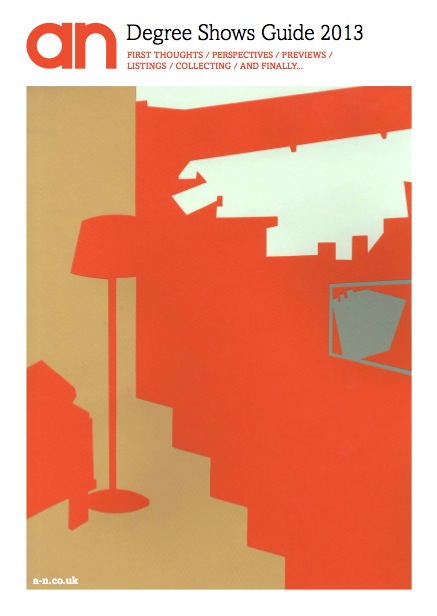

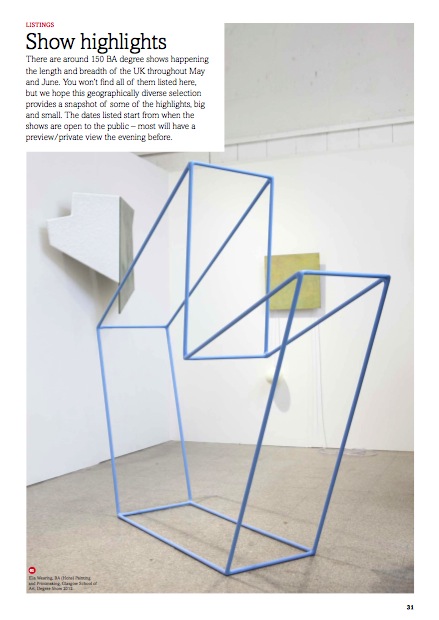


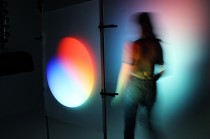
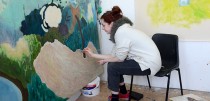
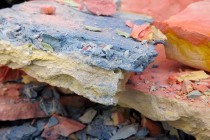









Comments